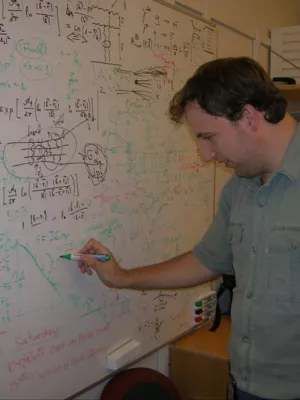
Roman Pasechnik
Senior lecturer

Beyond ΛCDM : Problems, solutions, and the road ahead
Author
Summary, in English
Despite its continued observational successes, there is a persistent (and growing) interest in extending cosmology beyond the standard model, ΛCDM. This is motivated by a range of apparently serious theoretical issues, involving such questions as the cosmological constant problem, the particle nature of dark matter, the validity of general relativity on large scales, the existence of anomalies in the CMB and on small scales, and the predictivity and testability of the inflationary paradigm. In this paper, we summarize the current status of ΛCDM as a physical theory, and review investigations into possible alternatives along a number of different lines, with a particular focus on highlighting the most promising directions. While the fundamental problems are proving reluctant to yield, the study of alternative cosmologies has led to considerable progress, with much more to come if hopes about forthcoming high-precision observations and new theoretical ideas are fulfilled.
Department/s
- Theoretical Particle Physics - Has been reorganised
Publishing year
2016-06-01
Language
English
Pages
56-99
Publication/Series
Physics of the Dark Universe
Volume
12
Document type
Journal article
Publisher
Elsevier
Topic
- Astronomy, Astrophysics and Cosmology
Keywords
- Cosmological constant problem
- Cosmology
- Dark energy
- Dark matter
- Early universe
- Modified gravity
Status
Published
ISBN/ISSN/Other
- ISSN: 2212-6864

